
下载亿题库APP
联系电话:400-660-1360

下载亿题库APP
联系电话:400-660-1360

请谨慎保管和记忆你的密码,以免泄露和丢失

请谨慎保管和记忆你的密码,以免泄露和丢失

英语是考研初试当中比较拉分的科目,历来令不少考生又爱又恨。许多考生的英语都有很大的进步空间,因此英语该如何学就成为了众多考生关心的重点。想要学好英语,实战经验很重要。下面,帮考网为大家带来考研初试英语科目的一些模拟试题,正在备考的小伙伴赶紧练起来吧。
Section Ⅱ Reading Comprehension
Part A
Directions:
Read the following four texts. Answer the questions below each text by choosing A, B, C or D. Mark your answers on the ANSWER SHEET. (40 points)
Text 1
In order to “change lives for the better” and reduce “dependency” George Osborne, Chancellor of the Exchequer, introduced the “upfront work search” scheme. Only if the jobless arrive at the job centre with a CV, register for online job search, and start looking for work will they be eligible for benefit and then they should report weekly rather than fortnightly. What could be more reasonable?
More apparent reasonableness followed. There will now be a seven-day wait for the jobseeker’s allowance. “Those first few days should be spent looking for work, not looking to sign on.” he claimed. “We’re doing these things because we know they help people stay off benefits and help those on benefits get into work faster.” Help? Really? On first hearing, this was the socially concerned chancellor, trying to change lives for the better, complete with “reforms” to an obviously indulgent system that demands too little effort from the newly unemployed to find work, and subsidizes laziness. What motivated him, we were to understand, was his zeal for “fundamental fairness”— protecting the taxpayer, controlling spending and ensuring that only the most deserving claimants received their benefits.
Losing a job is hurting: you don’t skip down to the jobcentre with a song in your heart, delighted at the prospect of doubling your income from the generous state. It is financially terrifying, psychologically embarrassing and you know that support is minimal and extraordinarily hard to get. You are now not wanted; you support is minimal and extraordinarily hard to get. You are now not wanted; you are now excluded from the work environment that offers purpose and structure in your life. Worse, the crucial income to feed yourself and your family and pay the bills has disappeared. Ask anyone newly unemployed what they want and the answer is always: a job.
But in Osborneland, your first instinct is to fall into dependency—permanent dependency if you can get it — supported by a state only too ready to indulge your falsehood. It is as though 20 years of ever-tougher reforms of the job search and benefit administration system never happened. The principle of British welfare is no longer that you can insure yourself against the risk of unemployment and receive unconditional payments if the disaster happens. Even the very phrase “jobseeker’s allowance” is about redefining the unemployed as a “jobseeker” who had no fundamental right to a benefit he or she has earned through making national insurance contributions. Instead, the claimant receives a time-limited “allowance,” conditional on actively seeking a job; no entitlement and no insurance, at £71.70 a week, one of the least generous in the EU.
21.George Osborne’s scheme was intended to .
[A] provide the unemployed with easier access to benefits
[B] encourage jobseekers’ active engagement in job seeking
[C] motivate the unemployed to report voluntarily
[D] guarantee jobseekers’ legitimate right to benefits
22.The phrase, “to sign on” (Line 3, Para.2) most probably means .
[A] to check on the availability of jobs at the jobcentre
[B] to accept the government’s restrictions on the allowance
[C] to register for an allowance from the government
[D] to attend a governmental job-training program
23.What prompted the chancellor to develop his scheme?
[A] A desire to secure a better life for all.
[B] An eagerness to protect the unemployed.
[C] An urge to be generous to the claimants.
[D] A passion to ensure fairness for taxpayers.
24.According to Paragraph 3, being unemployed makes one feel .
[A] uneasy
[B] enraged
[C] insulted
[D] guilty
25.To which of the following would the author most probably agree?
[A] The British welfare system indulges jobseekers’ laziness.
[B] Osborne’s reforms will reduce the risk of unemployment.
[C] The jobseekers’ allowance has met their actual needs.
[D] Unemployment benefits should not be made conditional.
参考答案:21.B 22.C 23.D 24.A 25.D
以上就是帮考网为大家带来的全部内容,希望能给大家一些帮助。帮考网提醒:在最后阶段,调整自己的心态也是非常重要的,每年都有考生临考前放弃,所以小伙伴们要注意不要给自己太大的压力哦。另外,小伙伴们如果还有其他关于考研信息的疑问,也可以留言咨询哦。
 22
22以前年度的普通研究生入学考试成绩还能查询吗?:以前年度的普通研究生入学考试成绩还能查询吗?以前的考研成绩能查,成绩查询可以登录中国研究生招生信息网,根据自己报考研究生考试的报名号登陆,即可查询以前的考研成绩。
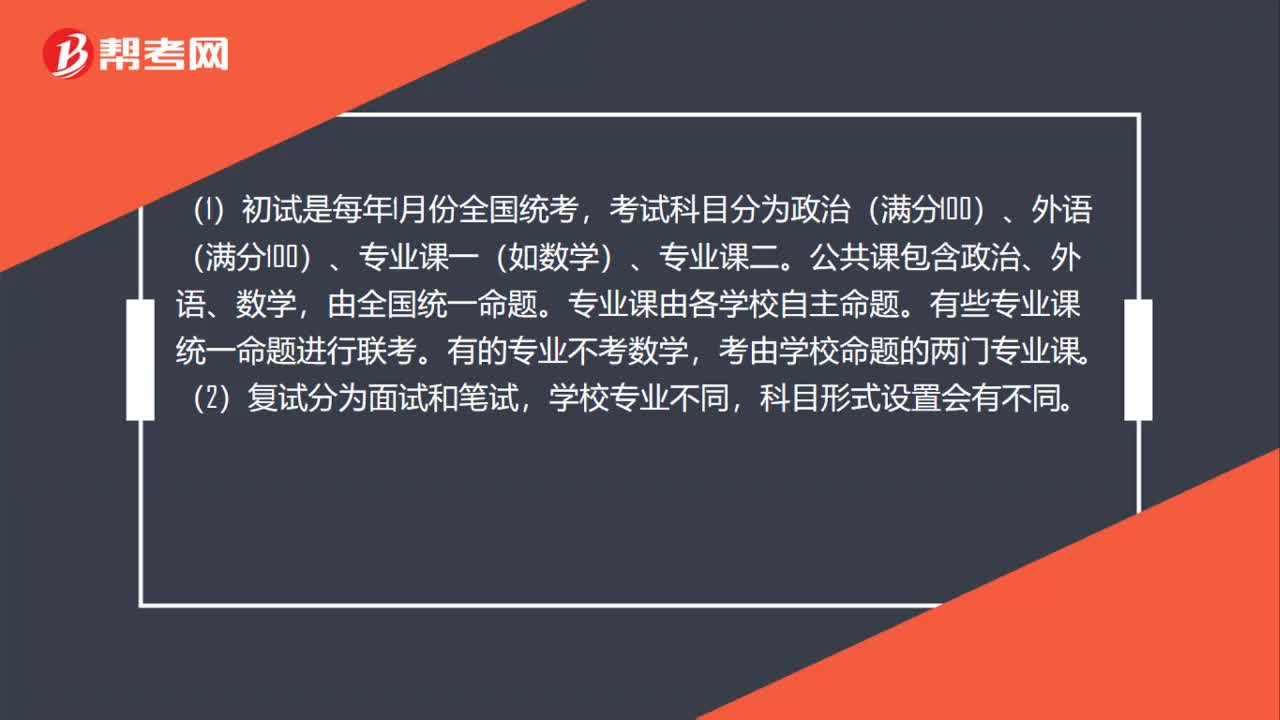 44
44研究生入学考试要考哪几门?:研究生入学考试要考哪几门?(1)初试是每年1月份全国统考,考试科目分为政治(满分100)、外语(满分100)、专业课一(如数学)、专业课二。公共课包含政治、外语、数学,由全国统一命题。专业课由各学校自主命题。有些专业课统一命题进行联考。有的专业不考数学,考由学校命题的两门专业课。(2)复试分为面试和笔试,学校专业不同,科目形式设置会有不同。
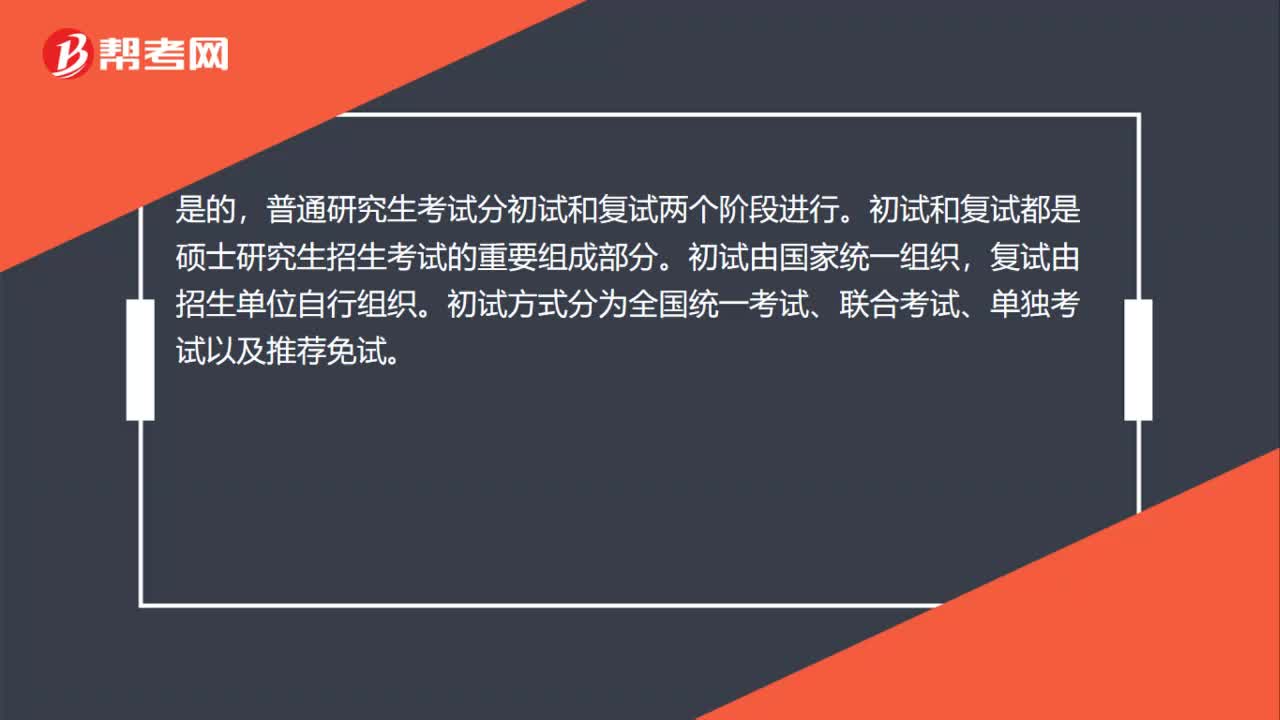 49
49普通研究生入学考试同一专业的初试是全国统一的吗?:普通研究生入学考试同一专业的初试是全国统一的吗?是的,普通研究生考试分初试和复试两个阶段进行。初试和复试都是硕士研究生招生考试的重要组成部分。初试由国家统一组织,复试由招生单位自行组织。初试方式分为全国统一考试、联合考试、单独考试以及推荐免试。全国统一命题科目及招生单位自命题科目试题(包括副题)、参考答案、评分参考等应当按照教育工作国家秘密范围的有关规定严格管理。
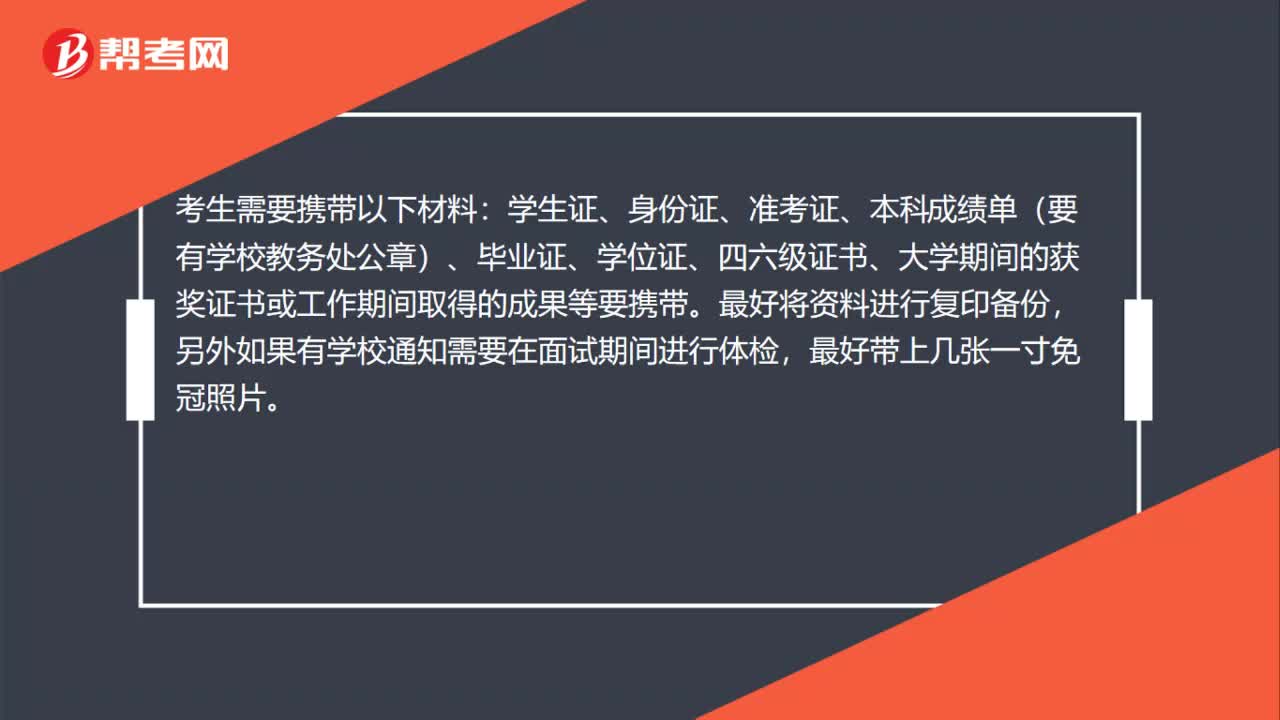 00:41
00:412020-06-06
 00:44
00:442020-06-06
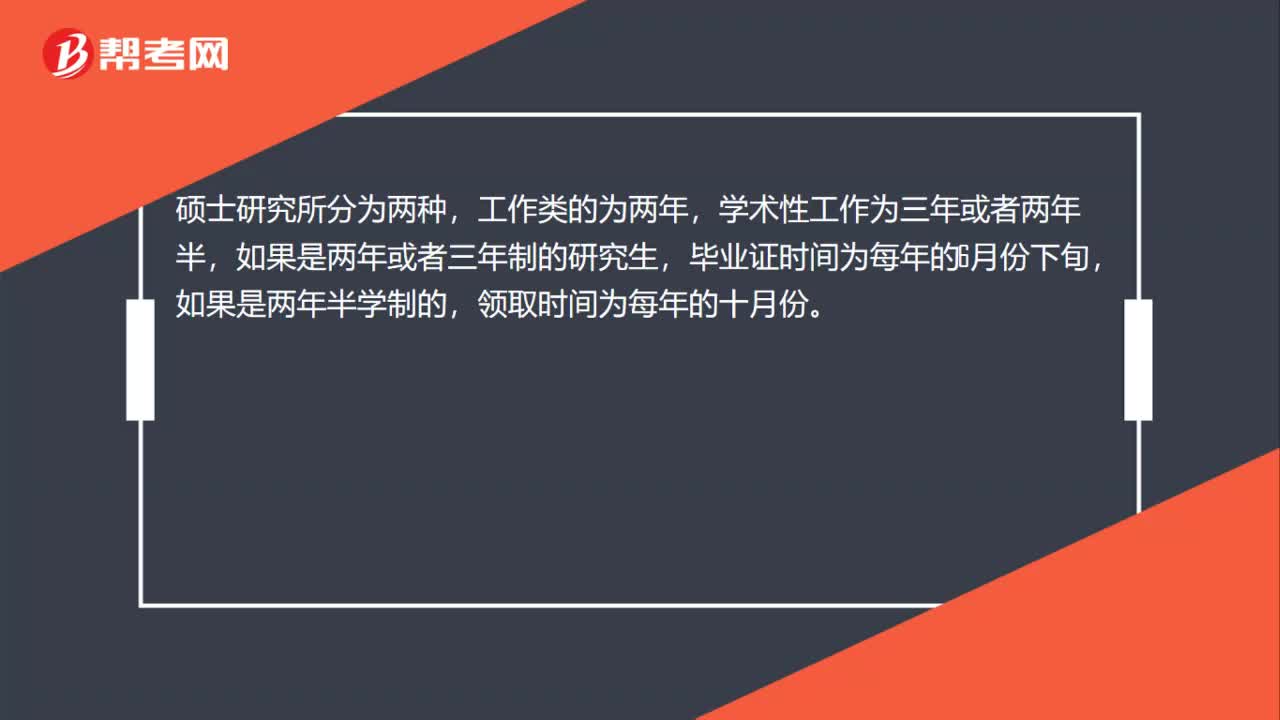 00:28
00:282020-06-06
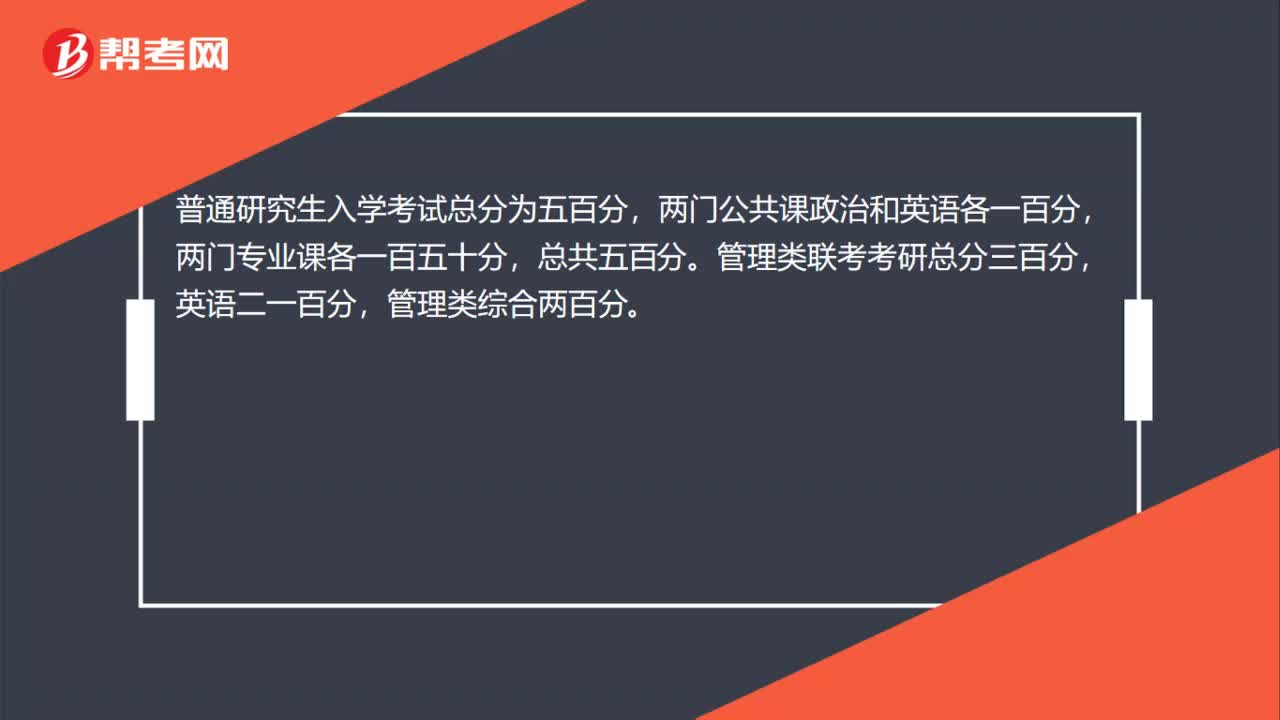 00:27
00:272020-06-06
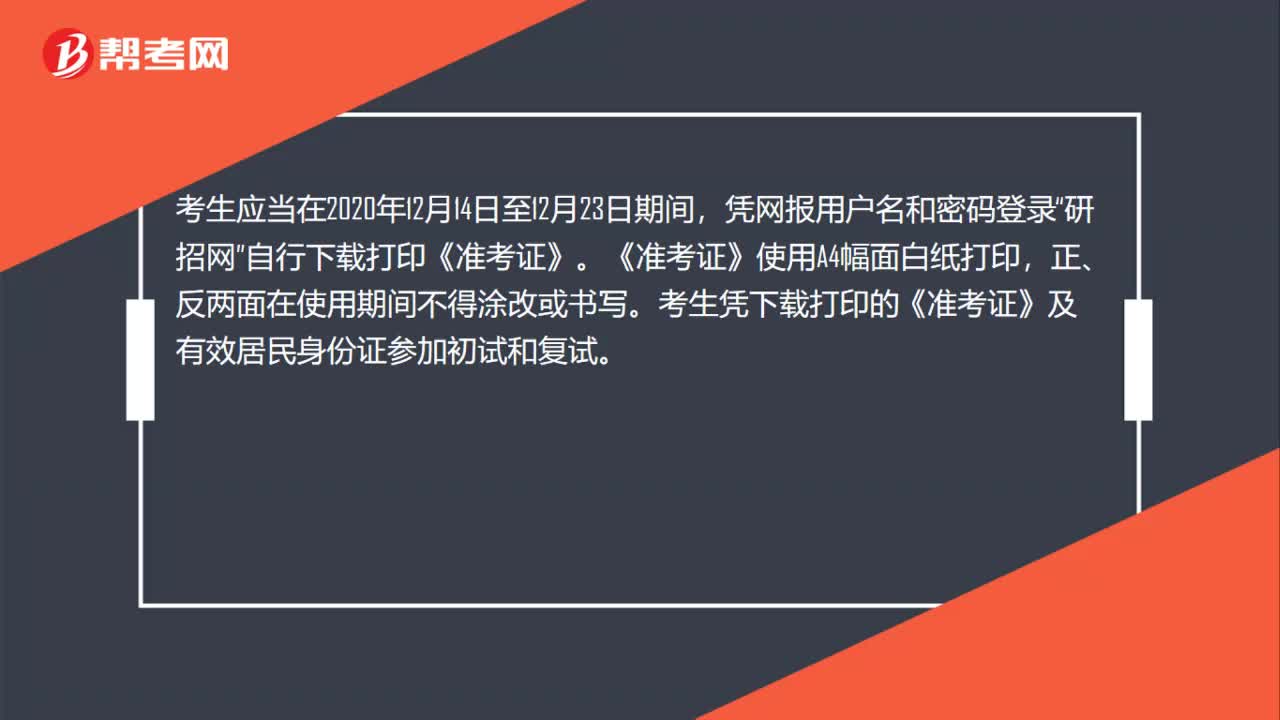 00:33
00:332020-06-06

微信扫码关注公众号
获取更多考试热门资料